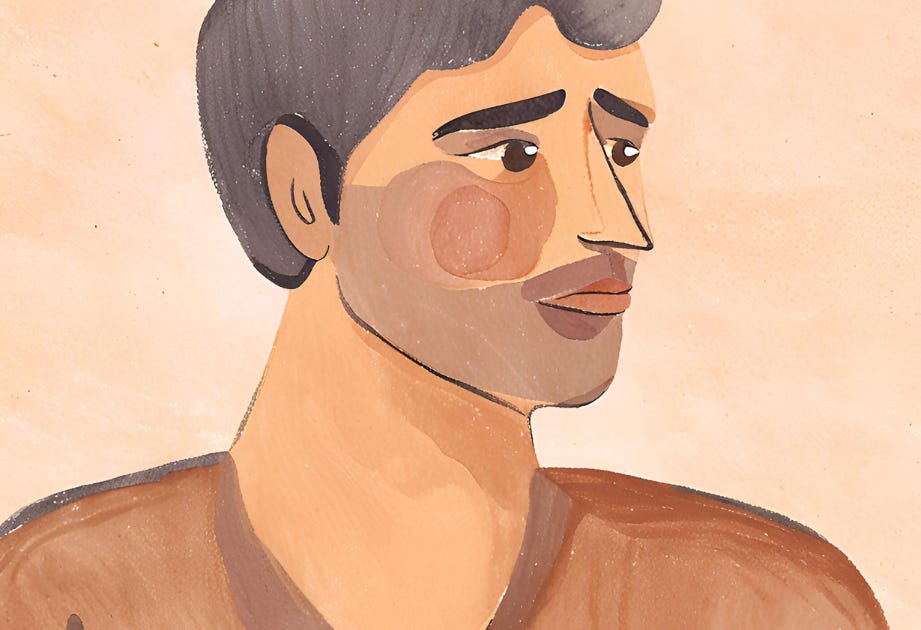In today’s world, we face a growing loneliness epidemic. More and more people feel isolated, and it’s not just bad for our mental health—it’s affecting our physical health too. Studies have shown that feeling lonely can have the same impact on your body as smoking 15 cigarettes a day. We aren’t built to be alone, yet so many of us find ourselves feeling disconnected from others, even when we’re surrounded by people.
Part of this loneliness, especially for men, comes from how society has shaped masculinity. For many, masculinity is about self-reliance. It teaches us to pride ourselves on handling everything alone and to feel strong when we don’t need anyone else. Admitting that you are lonely can feel like a sign of weakness, even if you don’t call it that. You might hesitate to tell a friend that you’ve been feeling lonely, because deep down, you believe that strong men shouldn’t rely on others. That discomfort—that hesitation—isn’t just by chance. It’s built into the way traditional masculinity works.
But here’s the thing: we do need other people. Humans are social creatures, and community is essential for us to thrive. Not only does it give us support during tough times, but it also gives us space to grow, share, and connect. And for men, this kind of connection can be deeply healing.
When I interviewed Kenji Kuramitsu, a Japanese-American clinical social worker specializing in LGBTQ+ healthcare in Chicago, he highlighted the importance of community among Japanese-American men following the war:
I often think about how many of the Japanese-American community members experienced trauma, indignities, and the humiliation of the camp experience during World War II. I think about how many of them felt that they had to mute or internalize their response. There are stories that people tell in the community about the reparations campaign of the 1980s and how, for the first time in decades, elders shared about what they had gone through during the war. And, if you talk to people who witnessed the public hearings, they will often reference the Issei or Nisei men, first or second-generation men, crying openly. That level of emotion was anathema to the cultural norms of the Japanese-American community of that generation. Something about these men’s tears unlocked a way that the community was able to access the pain of this event in a new way.
These men had lost so much, and crying together became a form of healing. Their pain didn’t make them weak—it made them human. It’s a powerful reminder that community and vulnerability can be a strength, not a weakness.
In a separate interview with Ryan Mijumbi, a Ugandan-American friend of mine, I learned about the power of brotherhood, specifically among black and African American communities. During college, Ryan was inducted into a leadership organization for African American men. In his second year, he mentions having a reckoning with his identity:
Being in this cohort of black men coming from different stripes, passions, fields, personalities – I truly came to understand my own male blackness. I also saw how I fit into the African American experience. Every day that I breathe is a testament to the work, sacrifices, and even, unfortunately, the deaths of African American individuals in America’s past. The fact that I benefit from their hard fought labor binds me to them.
For Ryan, it seems this sense of belonging was transformative—it helped him embrace his identity with confidence. Both Kenji and Ryan’s stories show how powerful community can be in shaping a man’s understanding of himself and his masculinity. They remind us that being part of something larger than ourselves doesn’t make us weaker—it makes us stronger.
At the end of the day, we’re all in this together. Masculinity doesn’t have to be about going it alone—it can be about finding strength in community, about showing up for each other, and about realizing that we don’t have to carry everything by ourselves. We can redefine what it means to be strong by embracing connection, support, and community.
Related Articles
If you liked this piece, you may enjoy these other articles:
I Never Cried, Until It Brought Me Peace
Throughout my childhood and adolescence, I was discouraged from crying. It was considered a sign of weakness. However, as an adult, as a response to traditional masculinity, I have heard it said time and again: it’s important to cry.




